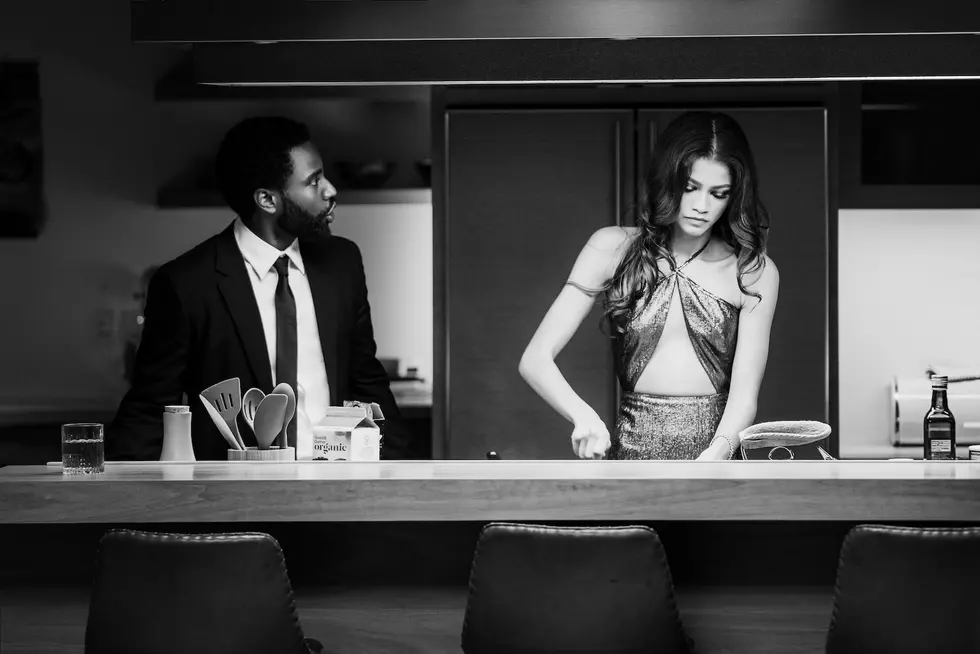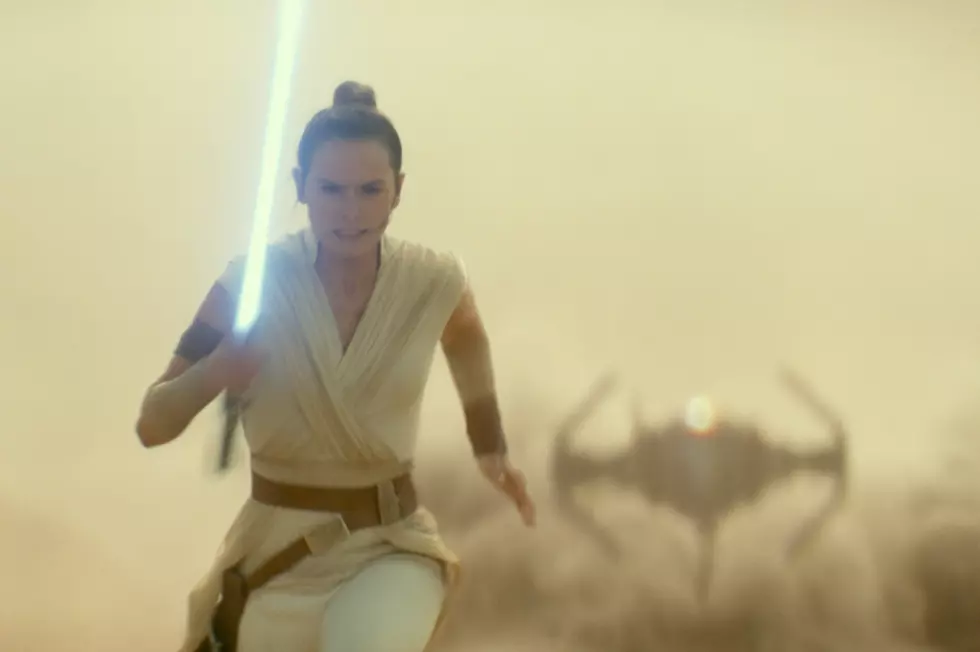
‘Dune’ Review: A Spicy Journey to an Amazing Future
I will never watch any kind of making-of documentary or behind-the-scenes featurette about Denis Villeneuve’s Dune. I don’t want to know how this film was made. I prefer to believe the extremely convincing illusion that Villeneuve somehow traveled to the year 10,191 and documented the strange civilization he encountered. Dune is full of stylization and visual artistry, but the future it conjures feel so complete and tactile that some segments play like a documentary of the world to come — which is an especially impressive feat since that world involves giant sandworms that consume everything that passes through their sphincter-like maws.
The sandworms and all of Dune’s attendant accoutrements — telepathy, a hallucinogenic substance known as “spice,” the vaguely bondage-ish “stillsuits” that characters wear to recycle their bodily waste back into water — have always seemed very silly to me, someone who has never read any of Frank Herbert’s many Dune novels. The same goes for David Lynch’s baffling but oddly endearing film adaptation, which I’ve enjoyed despite the fact that I can never quite follow what is going on in it, even though characters explain the plot in almost every single scene.
To my amazement, and to Villeneuve’s credit, this new Dune is totally clear in its premise, politics, and operatic sci-fi story. It’s also filled with the sort of epic grandeur of vision that Dune fans always insist makes the original text special. Watching this movie, I finally understood why generations of readers and directors fell under this material’s spell. Villeneuve took a novel that has confounded many great filmmakers of the past and created something coherent, compelling, and visually remarkable.
The trick, it seems, was in only adapting the first half of it. As the opening title card indicates, this is technically Dune: Part One. Villeneuve wanted to break Herbert’s book into two sections and shoot both simultaneously, but Warner Bros would only put up the cash for one film. Whatever they paid for this half of Dune, they got their money’s worth. The word that kept coming to my mind throughout the film is decadent. Villaneuve and his team created a totally credible (if still absolutely bonkers) future, and it looks like cost a fortune to do it.
Everywhere the camera goes, it finds new and peculiar things to look at, like spaceships that stay aloft by fluttering their four wings like a giant dragonfly made of steel. From the sets to the costumes to the props, nothing feels like it originated on our planet; everything bears curious and otherworldly shapes and contours. I kept craning my neck to try to peer around the edges of the frame, wanting to soak up as many of the fabulously weird details as possible.
The only area where the illusion slips is in the realm of acting, not because the cast is bad but because most of the performers are huge, recognizable stars. (A movie of this budget and scope needs brand-name actors to bring in skeptical audiences, but a Dune full of unknown talents would have been even more delightfully alien.) The central figure of the story is Timothee Chalamet’s Paul Atreides, the scion of the powerful House Atreides. This regal family, led by Duke Leto Atreides (Oscar Isaac), rules over the planet Caladan until it is ordered by the Emperor to relocate to and supervise Arrakis, the borderline uninhabitable desert world where spice is found. The assignment could make House Atreides the most powerful family in the galaxy, or destroy them if they fail to fulfill their duties.
House Atreides also has to contend with their rivals from House Harkonnen, the former stewards of Arrakis led by the corpulent Baron Harkonnen (Stellan Skarsgard), and the native people of Arrakis, the subterranean survivalists known as the Fremen, led by the mysterious Stilgar (Javier Bardem). Paul, the son of Duke Leto and his concubine Lady Jessica (Rebeca Ferguson), joins the rest of his family on Arrakis, where he learns he may be a prophesied superbeing known as the “Kwisatz Haderach.” The young, slight Paul seems skeptical about his grand destiny, and he’s plagued by bizarre dreams of places he’s never been and people he’s never met — including a beautiful Fremen woman played by Zendaya.
All of these actors are outstanding. Isaac radiates equal parts strength and sadness as the charismatic Duke Leto. Bardem has just a handful of scenes, but he immediately gives pathos and gravitas to the plight of the subjugated Fremen people. Paul’s closest advisers and trainers are two warriors, played by Josh Brolin and Jason Momoa, the latter of which looks especially jazzed to be surrounded by so much sci-fi splendor. Momoa brings a wonderfully earthy energy to a movie that can otherwise feel a little cold and distant. And Chalamet really sells Paul’s journey from innocent kid to battle-hardened warrior.
The struggle between the Harkonnens and the Atreides builds to some truly astonishing visuals. Some are beautiful, others are horrifying; all are so much fun to just look at, particularly on a big screen. Dune will premiere simultaneously in theaters and on HBO Max and while it’s worth seeing however you can, there’s no doubt that the film benefits from the size and immersion of a theatrical experience. (I haven’t seen it in IMAX yet, but I want to – I’m sure it’s even more spectacular.)
In truth, Dune does feel like an incomplete story. (The last line, ironically, is “This is only the beginning.”) Whether Villeneuve gets to make Part Two depends largely Part One’s success. Call me a cynic, but I suspect that means we’ll never see this story finished. Either way, I would rather have one magnificent portion than a frenzied, nonsensical whole.
RATIING: 9/10
Dune: New Images
More From Sasquatch 92.1 FM








